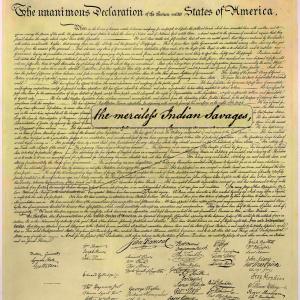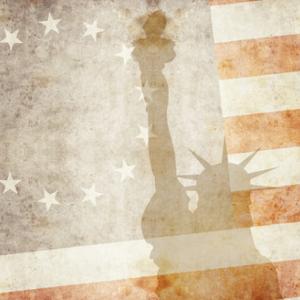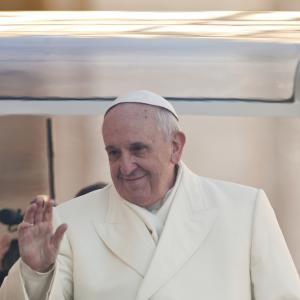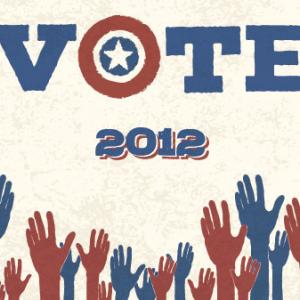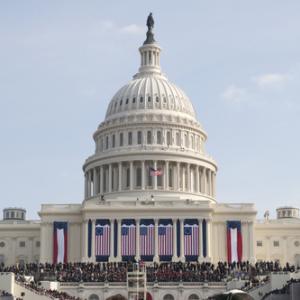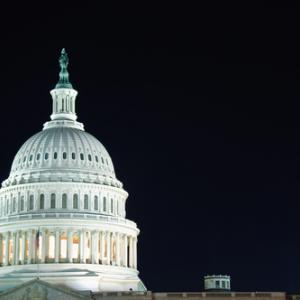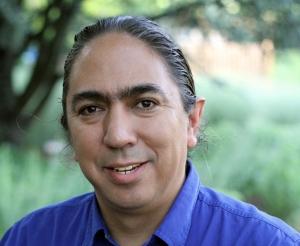
Mark Charles is a speaker, writer, and consultant who recently moved to Washington DC from the Navajo Reservation. The son of an American woman of Dutch heritage and a Navajo man, Mark seeks to understand the complexities of American history regarding race, culture, and faith in order to help forge a path of healing and reconciliation for the nation. He partners with numerous organizations to assist them in respectfully approaching, including, and working with native communities.
Mark serves as the Washington DC correspondent and regular columnist for Native News Online and is the author of the popular blog "Reflections from the Hogan" Mark also serves on the board of the Christian Community Development Association (CCDA) and consults with the Calvin Institute of Christian Worship (CICW). He is a founding partner of a national conference for Native students called “Would Jesus Eat Frybread?” (CRU, IVCF and CICW)
Mark is also the founder and director of 5 Small Loaves, an organization that pursues racial conciliation through honest education, intentional conversation, and meaningful action. Under this organization, Mark has proposed the development of a Truth Commission to shed light into the injustices perpetrated against Native Americans.
Posts By This Author
The Generations of Racism Behind Clinton's 'Off the Reservation' Remark
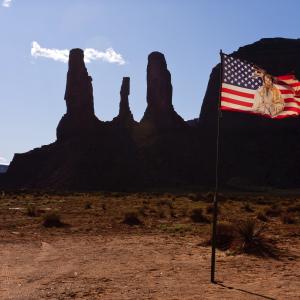
Image via Scott Prokop/Shutterstock.com
Unfortunately, the dialogue that is taking place this election cycle is not about broad-based equality or ending racism. The conversation we are having today is about the type of racism we want to settle for. Do we want Hillary Clinton to work to keep racism as our nation’s implicit bias, or allow Donald Trump to champion racism as our explicit bias? After all, isn't building a wall, banning Muslims, and personally funding a presidential campaign with a fortune made by buying and selling land that has been ethnically cleansed merely the fruit of a country that has learned all too well how to deal with the “merciless Indian savages” who sometimes get "off the reservation?"
What's In a Name?

Gail Johnson / Shutterstock
DURING A TRIP to Alaska in September, President Obama announced that the name of Mount McKinley, the highest peak in North America, would be officially restored to Denali, the Koyukon Athabascan name that means “the tall one.” This is the name the Athabascan people have used for the mountain for centuries. “This designation recognizes the sacred status of Denali to generations of Alaska Natives,” announced the White House.
Apparently, William Dickey, a gold prospector in Alaska, coined the name Mount McKinley “after William McKinley of Ohio, who had been nominated for the presidency, and that fact was the first news we received on our way out of [that] wonderful wilderness,” Dickey wrote in 1896. McKinley was elected the 25th president, but he was assassinated in his second term, never having set foot in Alaska.
Restoring the mountain’s rightful name has been a passionate issue for Alaska Natives for more than 100 years.
A few years ago a Native elder was asked for his thoughts on the millions of European immigrants who had flooded Turtle Island, as North America is known to many Native people, to establish a new nation. “They’ll leave,” he said. “Eventually, after they have used up all the resources and the land is no longer profitable for them, they’ll leave. They’ll move on to someplace different. And then we, the Indigenous people, will nurse our land back to health.” That is an incredible perspective from a wise man who has seen the lands of his ancestors senselessly exploited by generations of foreigners.
From a Native American perspective, the U.S. is a country of more than 300 million undocumented immigrants. People from all over the world have left their lands, their homes, their families, and everything they knew and loved to come here. They flocked to this “new world” largely in pursuit of a dream of financial prosperity. But they never asked for permission to be here, nor has permission ever been given.
Political Correctness Can’t Save Columbus Day
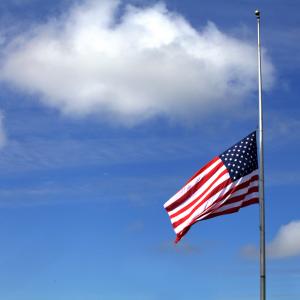
Image via KennStilger47 / Shutterstock.com
This nation needs to make a choice. Does it continue to honor a man whose claim of “discovery” opened the door for centuries of injustice? Or does it openly teach that history, mourn those atrocities, and commit itself to ensuring that it does not happen again?
Why I'm Deeply Disappointed With Pope Francis
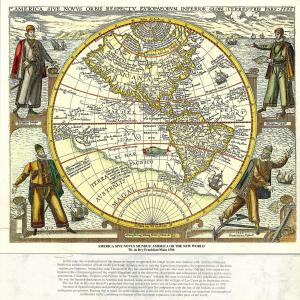
Image via Wikimedia Commons
I had been anticipating Pope Francis’ speech to a joint session of Congress ever since I learned it was planned. From the beginning of his papacy, Pope Francis has established himself as a fearless advocate for the least, and an unapologetic prophet to both the church and the nations. A leader who shunned the glitter of the Apostolic Palace for the simplicity of a small guesthouse. A people’s pope who rebuked the rich and ate with the poor, and scolded the extravagance of the industrialized world as he drove through it in a fuel-efficient Fiat.
What words would this leader have for the Congress of the most wealthy, militarily powerful, commercially industrialized, colonial nation in the history of the world? The possibilities seemed endless.
Whose Fourth of July?
The other day I was eating dinner with my wife in a restaurant in Gallup, N.M., a border town to the Navajo reservation. Gallup was recently named the "Most Patriotic Small Town" in a nationwide contest. Soon after sitting down I noticed that we were seated at a table directly facing a framed poster of the Declaration of Independence.
The irony almost made me laugh.
When our server, who was also Native, came to the table, I asked if I could show him something. I then stood up and pointed out that 30 lines below the famous quote "All men are created equal," the Declaration of Independence refers to Natives as "merciless Indian savages."
The restaurant was filled with Native American customers and employees. And there in plain sight, a poster hanging on the wall was, literally, calling all of us "savages."
A Day of Lament ...

Man praying, Esin Deniz/Shutterstock.com
I lament with every person and community, throughout the history of this nation, who, due to the color of his or her skin, had to endure marginalization, silence, discrimination, beatings, lynching, cultural genocide, boarding schools, internment camps, mass incarceration, broken treaties, stolen lands, murder, slavery, and discovery.
The Problem With Systemic Racism...
They say a watched pot never boils. But that's not entirely true. Of course a watched pot boils—it's just that intently watching a pot of water reach 212 degrees Fahrenheit is not an incredibly exciting way to spend your time. And so most people get bored or distracted and end up leaving before it ever reaches the boiling point.
Systemic racism is like a heat source that keeps a pot of water simmering at a constant 211 degrees. Extremely hot, but not quite boiling. Every once in a while the heat gets turned up just a tad—like when a frightened white police officer in Ferguson, Mo., shoots a young unarmed black man while his hands are in the air. Or a group of ignorant, overzealous college students from Oklahoma State University create a banner for a football game that makes light of an act of genocide committed against Native Americans by the United States government.
And then the water starts to boil.
Protests are organized. Twitter goes ablaze. Op-eds are written. Civil rights leaders are given the microphone.
And the temperature is brought back down to 211 degrees.
'...That All Men Are Created Equal'
People know.
Not just Americans, but the entire globe.
People know that the founders didn't mean it then, nor does this nation mean it now. Sure, the words were written down, and our leaders frequently point to them as evidence that we are good. But no one really meant them. They were merely a means to an end.
Back in 1776, when representatives from a bunch of colonies wrote the words, "We hold these truths to be self-evident, that all men are created equal," they did not in fact mean all men.
But people know that.
Introducing 5 Small Loaves
Dear Brothers and Sisters in Christ,
In the Bible, there is a story of when Jesus was teaching a large crowd. At the conclusion his disciples observed that it was late in the day, they were in a lonely place, and the people were hungry with no food to eat. Jesus responded by telling them, "You feed them." The disciples immediately panicked and pointed out that doing so would be massively expensive, costing up to eight months of a man’s wages. They also implied that they did not have enough money to make even a dent in that need. Undeterred, Jesus asked them what they did have. They went out and returned with a young boy who was willing to share his five small loaves and two little fish. Jesus took it, looked up to heaven, and GAVE THANKS! Then he just started passing out the food. And not only did more than 5,000 people eat to their heart's content, but afterward the disciples picked up 12 baskets full of leftovers! (See Mark 6:30-44 and John 6:1-15)
Did you ever stop to wonder how the young boy who gave his lunch to Jesus felt? Can you imagine the exhilaration he must have had watching his five small loaves and two little fish feed a crowd of well over 5,000 people? I bet he went home and told that story over and over and over again. He probably felt like, as long as he was with Jesus, anything was possible.
One young boy who was willing to share his simple lunch was all Jesus needed to meet the overwhelming needs of a very hungry crowd.
Without Exception
The other day I observed a Twitter exchange between Pope Francis and Miroslav Volf.
Pope Francis (@Pontifex) Tweeted:
“God does not reveal himself in strength or power, but in the weakness and fragility of a newborn babe.”
To which Miroslav Volf (@MiroslavVolf) replied:
“@Pontifex How true! And yet the babe grew and taught with power and authority, and the crucified one was raised from the dead in glory.”
Since moving to the Navajo reservation more than a decade ago, I have done much thinking, studying, praying, and reflecting on the dynamics between power and authority. And God has given me a few insights over the years. So when I read these tweets I had an instant desire to jump in and be a part of the discussion.
Richard Twiss Allowed Himself to be a Lightning Rod
It was one week ago that I received the email I had been dreading. On Feb. 6, 2013, while in Washington, D.C., for the National Prayer Breakfast, Richard Twiss suffered a major heart attack. He remained in a hospital in the D.C. area for several days as friends and family rushed to his side. But on Feb. 9, at the age of 58, Taoyate Obnajin, he Stands with his People, crossed over to meet the Creator. He is survived by his wife Katherine and his four sons Andrew, Philip, Ian, and Daniel.
If you ever had the privilege of meeting Richard Twiss, chances are he invited you somewhere. Richard was an incredible host. I remember last summer I attended a symposium for the North American Institute for Indigenous Theological Studies, of which Richard was a board member. No sooner had I walked through the door when I was greeted by Richard and asked if I would like to join their drum circle up front to start the next session. I felt extremely honored by this invitation and gladly accepted. I am not a trained theologian nor am I a prolific powwow drummer, but this small gesture immediately made me feel at home and communicated that I was welcome there and was given a voice should I have something to contribute.
Richard was involved in many conversations. As a follower of Jesus, president and co-founder of Wi
A Conversation for Reconciliation
Reconciliation is never easy, which is why it doesn't happen very often. Reconciliation is not something that can be checked off of a list. It is not a single event encapsulated in a moment of time. Reconciliation begins with a conversation and ends with a relationship restored.
It was the morning of Dec. 19, and I was standing in front of the U.S. Capitol building in Washington D.C. I had reserved that space months in advance so I could host a public reading of H.R. 3326, the 2010 Department of Defense Appropriations Act. I did this because page 45 of this 67-page document contained an "apology to native peoples of the United States." In three years this apology had not been announced, publicized, or read by either the White House or the 111th Congress.
My (Native) Vote
My early voting ballot is almost complete. I have done my reading, finished my research, and ignored a sufficient amount of robo-calls and attack ads. I have made my choices for county school superintendent, state representatives, and even U.S. Senator. But there is a gaping hole at the top of my ballot ...
It is November 6, 2012, and after more than a year of carefully following the presidential campaigns I still do not know which candidate I am going to vote for. I am an independent voter but registered as a democrat. On my Facebook page I identify my political position as "a morally-conservative Democrat or a fiscally-irresponsible Republican."
A More Perfect Union
If I had to translate her words into Navajo, I would say “ádin.” Ádin means nothing, none, zero.
I couldn't believe my ears. I was visiting Iowa in the first week of January during an election year. Presidential candidates were crisscrossing the state — kissing babies, shaking hands, and pleading for the vote of everyone they met. Campaign events were taking place in high school gymnasiums, community centers, and local businesses throughout the state. Many of the people I met had personal stories of meeting one of the candidates, shaking their hands, and talking about their issues. There are 99 counties in the state of Iowa, and a few of the candidates were taking the time to stop and hold campaign events in each and every one of them. But there I was, just a day before the caucuses, standing in the community center and tribal offices of the Meskwaki Settlement near Tama, Iowa, with the tribe’s executive director telling me that not a single presidential candidate had held a campaign event in their community.
I shouldn't have been surprised. After all I live on the Navajo Reservation. Our reserve is nearly 26,000 square miles with about 300,000 enrolled tribal members, and I cannot recall in my lifetime a presidential candidate visiting our reservation and campaigning directly to our people.
Respecting the Indigenous Hosts of This Land
In December, I will be hosting a public reading of the 2010 Department of Defense Appropriations Act in front of the Capitol in Washington, D.C.
I am doing so because page 45 of this 67 page document contains a generic, non-binding apology to native peoples on behalf of the citizens of the United States.
The text of the apology included in the defense appropriations bill reads:
Apology to Native Peoples of the United States
Sec. 8113. (a) Acknowledgment and Apology- The United States, acting through Congress —
(1) recognizes the special legal and political relationship Indian tribes have with the United States and the solemn covenant with the land we share;
(2) commends and honors Native Peoples for the thousands of years that they have stewarded and protected this land;
(3) recognizes that there have been years of official depredations, ill-conceived policies, and the breaking of covenants by the Federal Government regarding Indian tribes;
(4) apologizes on behalf of the people of the United States to all Native Peoples for the many instances of violence, maltreatment, and neglect inflicted on Native Peoples by citizens of the United States;
(5) expresses its regret for the ramifications of former wrongs and its commitment to build on the positive relationships of the past and present to move toward a brighter future where all the people of this land live reconciled as brothers and sisters, and harmoniously steward and protect this land together;
(6) urges the President to acknowledge the wrongs of the United States against Indian tribes in the history of the United States in order to bring healing to this land; and
(7) commends the State governments that have begun reconciliation efforts with recognized Indian tribes located in their boundaries and encourages all State governments similarly to work toward reconciling relationships with Indian tribes within their boundaries.
This apology was not publicized by the White House or Congress. As a result, a majority of the 350 million citizens of the United States do not know they have been apologized for, and most of the 5 million Indigenous Peoples of this land do not know they have been apologized to.
A New Conversation: Addressing a 500-Year-Old Wound
On December 19, I am hosting a public reading of the 2010 Department of Defense Appropriations Act. I am doing so because page 45 of this 67-page document contains a generic, non-binding apology to native peoples on behalf of the citizens of the United States.
This apology was not publicized by the White House nor by Congress. As a result, a majority of the 350 million citizens of the United States do not know they have been apologized for. And most of the 5 million Indigenous Peoples of this land do not know they have been apologized to.
... This apology is a part of our country's history. Our leaders wrote it, the 111th Congress passed it, and President Barack Obama signed it into law. Then, unfortunately, they buried it. I am not protesting this, nor am I celebrating it. I am merely attempting to publicize it in the most open, respectful, and sincere way I know how.
